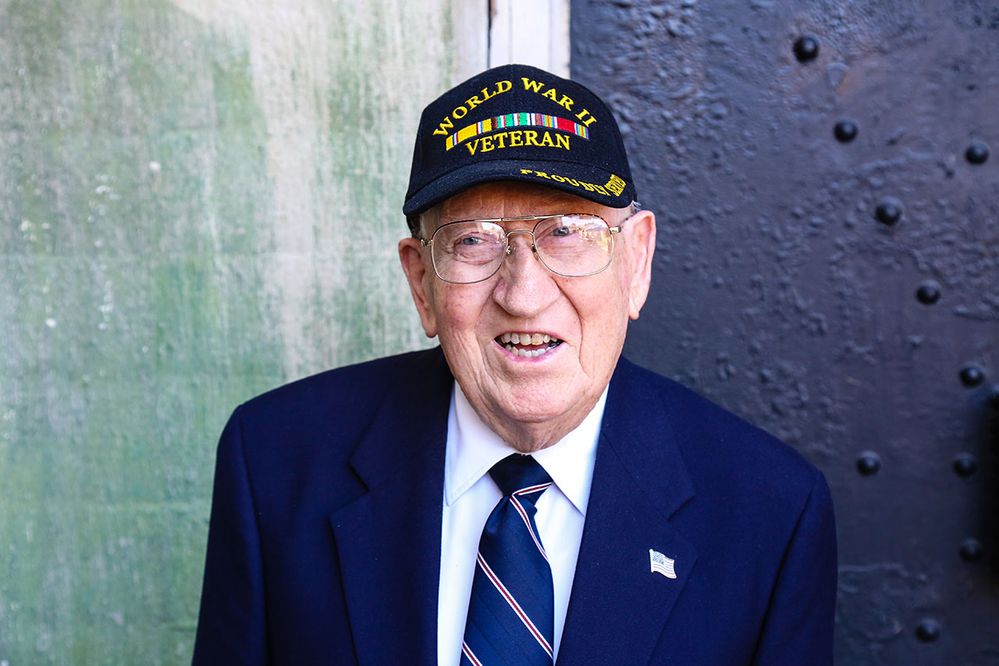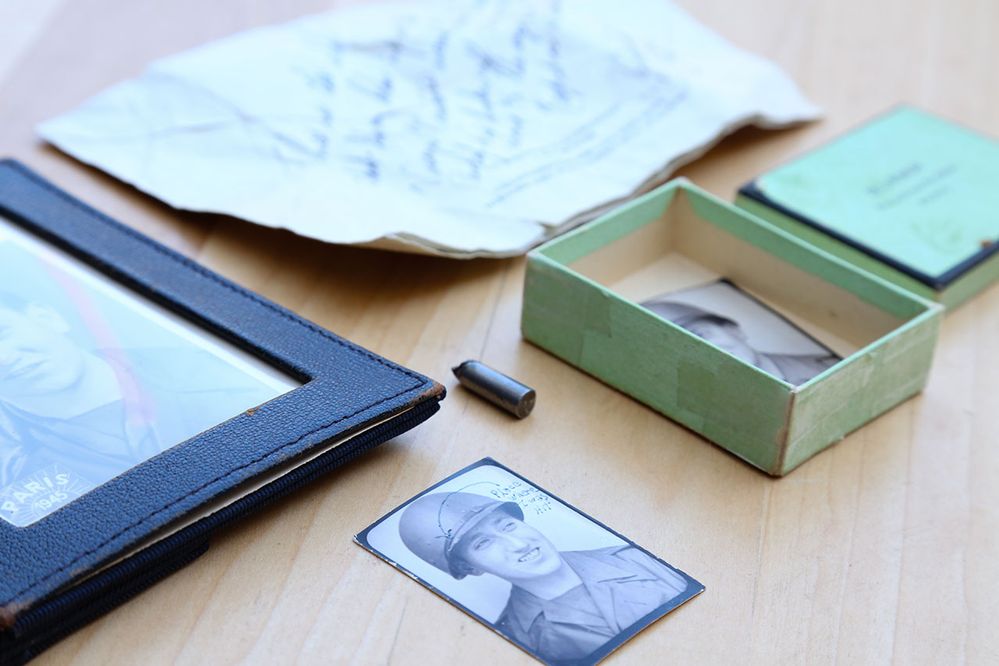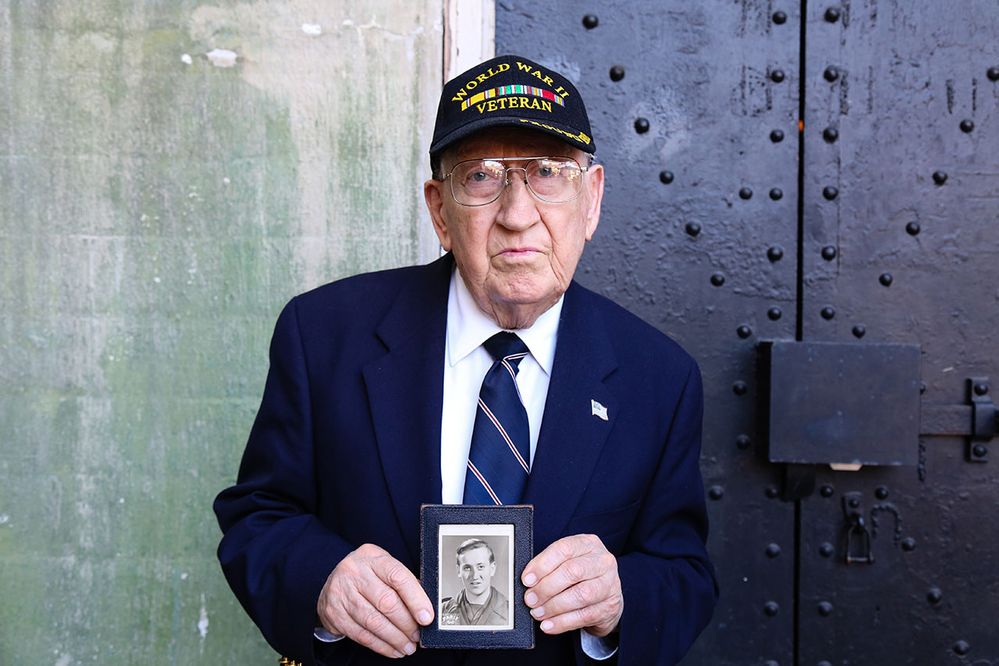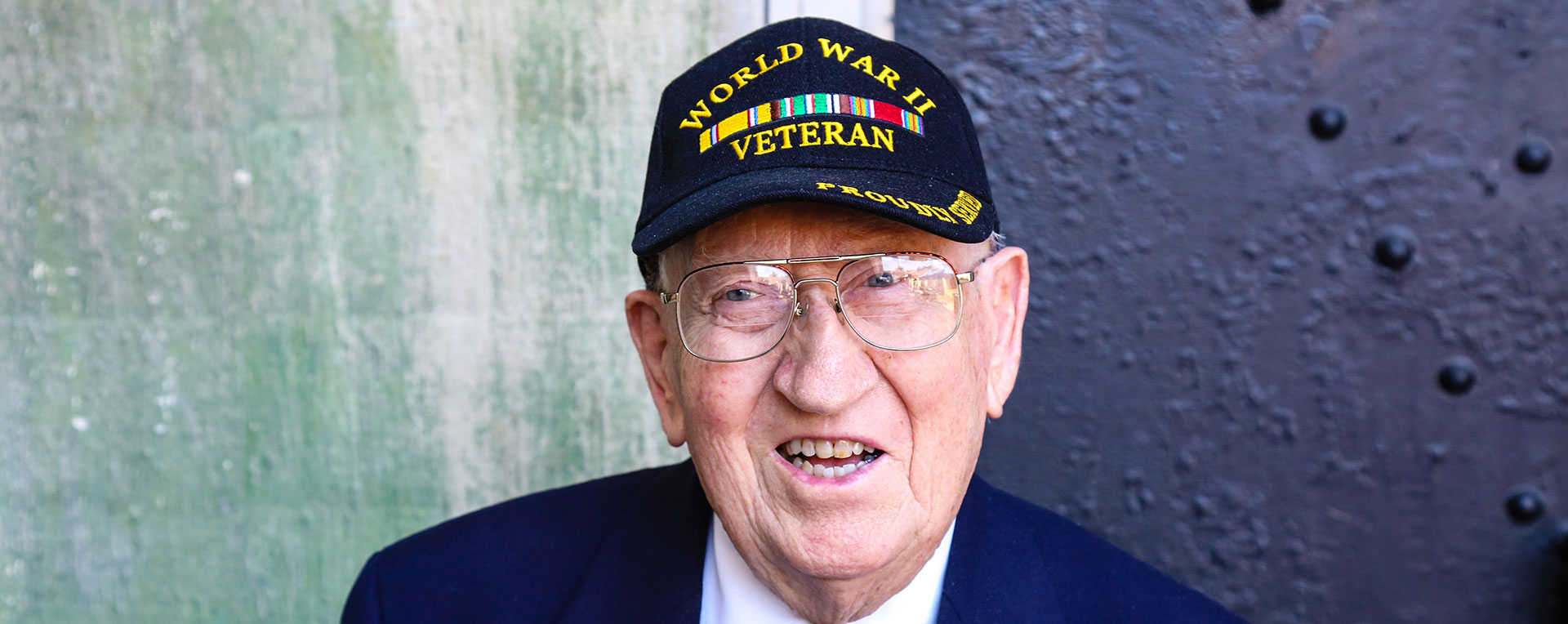
On this Memorial Day, we take the time to remember those who have fallen while in the service of our country. Thankfully, Mr. Harold Angle is still with us, but many of those he served with are gone. Read on for some of his memories from World War II and take a moment to think about those service members who are no longer with us.
Activision Games Blog: Thank you for speaking with us, Mr. Angle. Where are you from?
Howard Angle: I'm from Chambersburg, Pennsylvania, and I'm 94 years of age.
How did you enter the war? Were you drafted?
I was drafted on July 3, 1944. I was a lifelong resident of Chambersburg, Pennsylvania and when I was drafted I reported to New Cumberland, Pennsylvania. Originally my paperwork had US Navy stamped on it, but after the July 4 holiday I ended up heading to Army basic training in Camp Walters, Texas. I went in July and the training was at least four months, and the rest of it was just getting processed to go overseas.
I finally got to Fort George Meade in Maryland where I was first processed, then I went from there to Camp Kilmer, New Jersey. And then from Camp Kilmer I boarded a Norwegian ship to go across the Atlantic to Liverpool, England.
This happened on December 24, Christmas Eve and talk about a depressing time. It was Christmas Eve, you usually spend that time with family, and I was aboard a ship and there no way I was going to get off.
That does sound pretty stark.
So, we arrived in Liverpool, England, in the daylight and we never debarked from the ship. Under the cover of darkness that night we went across the channel to Le Havre, France. After we got off the ship, we walked up the streets of Le Havre to a processing center. It was at that time that the reality really set in that there was a war going on, because the entire harbor area of Le Havre was bombed out.
What happened once you got to France?
Well, after I went to the processing center in Le Havre I was issued my M1 rifle and all the gear that I would need to go into combat. I was put on a truck and I can remember it was snowing, and I was headed for Colmar, France to join up with the 28th Infantry Division. I had only been there a couple of days when I first went on a mission that got me into combat. That mission was supposed to be taking out a machine gun nest up in the Vosges Mountains in Northeast France.
We headed up the mountain one night around 8:00 and there was about eight to ten inches of snow on the ground. As we were walking up a trail, our sergeant tripped a wire that was strung across the trail, under the snow. As soon as he tripped that wire, there were flares that went up into the sky and lit up that whole mountainside. Of course, as soon as it was lit up the Germans knew that somebody had tripped the wire.
They had their machine guns zeroed in on that trail, but fortunately there was a depression where we could get down low enough, so that the machine gun bullets would go over the top of us instead of hitting us. We didn't lose anybody in that encounter, however we were pinned down all night long, and I mean all night long. Near the end of the night, our commanding officer said, "We’re going to go back down the mountain and try to come up and take them out from behind."
So, that's what we started to do. I was appointed second scout, and I was covering the left flank, while the first scout covered the right flank. It was just about dawn, just starting to get light, and as we were walking through the forest, I noticed off to my left that some other soldiers were coming our way. They had white hoods over them, and so did we to camouflage ourselves in the snow.
Apparently, one of the Germans hadn't pulled that white hood down completely over his helmet. So, when I noticed their distinctive helmet, I motioned for everybody to get down and the Germans noticed us at the same time. That's when we started exchange fire with each other. During that exchange of fire, while I was in the prone position, a bullet came in and hit me on the brim of the helmet, and it stunned me so bad that I blacked out.
Fortunately, it was just momentarily. When I came to shortly thereafter, one of the Germans closest to me threw a grenade over, and it landed about three feet in front of me. It landed in the snow and I could see the end coming. I didn't have time much to pray, but I gave a quick prayer. I said, “God protect me,” and it did not go off. It was a dud.
That’s incredible!
Not long after, our commanding officer said, "We're going to form a skirmish line across the mountain. I want you all to walk up in a line, and whenever I give the order, I want everybody to get up, start firing your weapon for all you're worth. I don't care whether you see anything or not, just keep firing away.” So, that’s what we did and then… wait, I don't think I told you the most important part about this story.

Was it about how you got that bullet?
Yes, I was getting carried away. While we were exchanging fire, that bullet put a nick in my helmet and I had a wool cap pulled down over my ears. Luckily that bullet never touched my ear, but it tore that cap all to shreds. There were just a couple of threads hanging on it and the bullet had deflected off the helmet and gone into my shoulder.
While it hurt, I had no time to do anything about it. So, after our skirmish was over, I went back to a medic, and I said, "I was hit and I think something's in this shoulder." He said, "Well, strip down." So, I took off my overcoat, my field jacket, my sweater, my OG shirt, and when I took off my OG shirt, that bullet was lodged between the shirt and my undershirt.
Oh my god, that was lucky.
It fell down into the snow and I didn't see it, but the medic saw it fall. He picked it up and handed it to me and said, "Here's a souvenir for you." So, I still have that.
That is truly amazing. That bullet had your name on it.
I think one of the other interesting stories about my combat experience would be the time after we crossed the Rhine River. There was a hill right outside a small town in Germany called Hellenthal. The Germans had dug trenches all around the perimeter of this hill and they were forced out of it by another division of ours. The other division occupied the hill for a few days and then our division, the 28th Division, was called to come in and relieve them. So, we occupied the same trenches as the Germans had, but there was artillery going across the hill in one direction, and artillery going another direction, towards the Germans.
The Germans were shooting artillery towards the Allied forces, and the Allied forces were shooting towards the German forces. They had a tank down there that was firing 88-millimeter shells and they happened to connect. But anyways, and this is the eerie part of this story, our medics were in the trench, and they were running alongside and hunched down trying not to get hit. The Germans noticed the red crosses they had on the front and back and apparently the German commander must have had a little bit of compassion at that particular time, because they stopped firing. We didn't fire, they didn't fire. It was quiet, and they let the medics to go in there and carry out the wounded. After the medics got out of sight, then they started up again.
How long were you in the service?
I was in it for two years, from July of 1944, and I got out on June 26th, 1946. But our division was destined to go to Japan, because the war was not over in Japan yet. So, we assembled at Camp Shelby, Mississippi. While we were there, the atomic bomb was dropped on Hiroshima and then also later, Nagasaki. As the result of the atomic bomb falling, the Japanese had surrendered, so there was no need for our division to go to Japan.
After the Japanese had surrendered, our division was allowing those soldiers who had accumulated enough points for their service overseas to be discharged, while those who didn't have enough points were reassigned to other divisions of the service. I happened to get reassigned to the Air Transport Command, and was stationed at Gravelly Point, Virginia, and Gravelly Point at that time was right next door to the National Airport, which is now called Ronald Reagan International airport. But I worked in a building there, along with officers from the Army, from the Marines, from the Navy, the Coast Guard, and the Air Force.
When you came back from being overseas, do you remember the first thing you did?
I believe that I asked my mother to cook a roast chicken dinner with all the stuffing.

Besides coming back with that bullet, what else has stayed with you from the war?
So, around April of 1945, I got sick out in the field and I went to a medic and he sent me back to a field hospital. When I got to the field hospital, they diagnosed me as having scarlet fever. So, I was flown back to a hospital in Paris, and I was in isolation for a couple of weeks. When I came out of isolation, they gave me a pass to go into the main part of Paris and to do sight-seeing or whatever I wanted to do. I had heard about the Folies Bergère, and I thought it would be fun to go see it.
I went to see the show, and as I was leaving the theater there was a lot of jubilation in the streets of Paris. That day happened to be May 8, 1945, and that's when I found out the war was over. VE Day had happened and the Germans had surrendered. Now, I had to be back at the hospital about 5:00, and when I went back there, it so happened that the Glenn Miller band was giving a concert on the hospital lawn. So that was quite a day.
After the war, what did you transition to in regular civilian life?
Well, my father was in the poultry and eggs business, and he had leased his business to a concern that he had been selling poultry to for many years. They operated his business and they also had their own business up in Hallam Town, Pennsylvania. So, after the lease had expired, we took over the business.
Later we had an opportunity to take on a Lincoln Mercury franchise. At that time, the Lincoln was being sold by Ford dealers, and Ford Motor Company decided to split Mercury away from the Ford dealers and have their own separate dealerships. So, my father applied for the franchise and he got it. We built a brand-new building for that franchise.
What do you hope that people learning about World War II today come away with?
I hope that the thing that they'll come away with is, that no matter what, war is terrible and we need to hope that our young people never have to go to war, like the people back at the time of World War I. Those veterans were hoping that future generations wouldn't have to go to war, but World War II did happen. Then after World War II, the veterans were hoping that no one else would have to go to war. But we know that since that time, that we had the Korean War, we had the Vietnam War, and so on. Technology in warfare has gotten so terrible, that it would be a terrible thing to happen for anybody to have to go war and experience it.
You said that perfectly. Mr. Angle, thank for your service.
Thank you.
Specials thanks to the Call of Duty Endowment and The Greatest Generations Foundation for making this interview possible. We owe a huge debt of gratitude to those who have paid the ultimate sacrifice. Please join us on this Memorial Day as we take the time to remember them.




